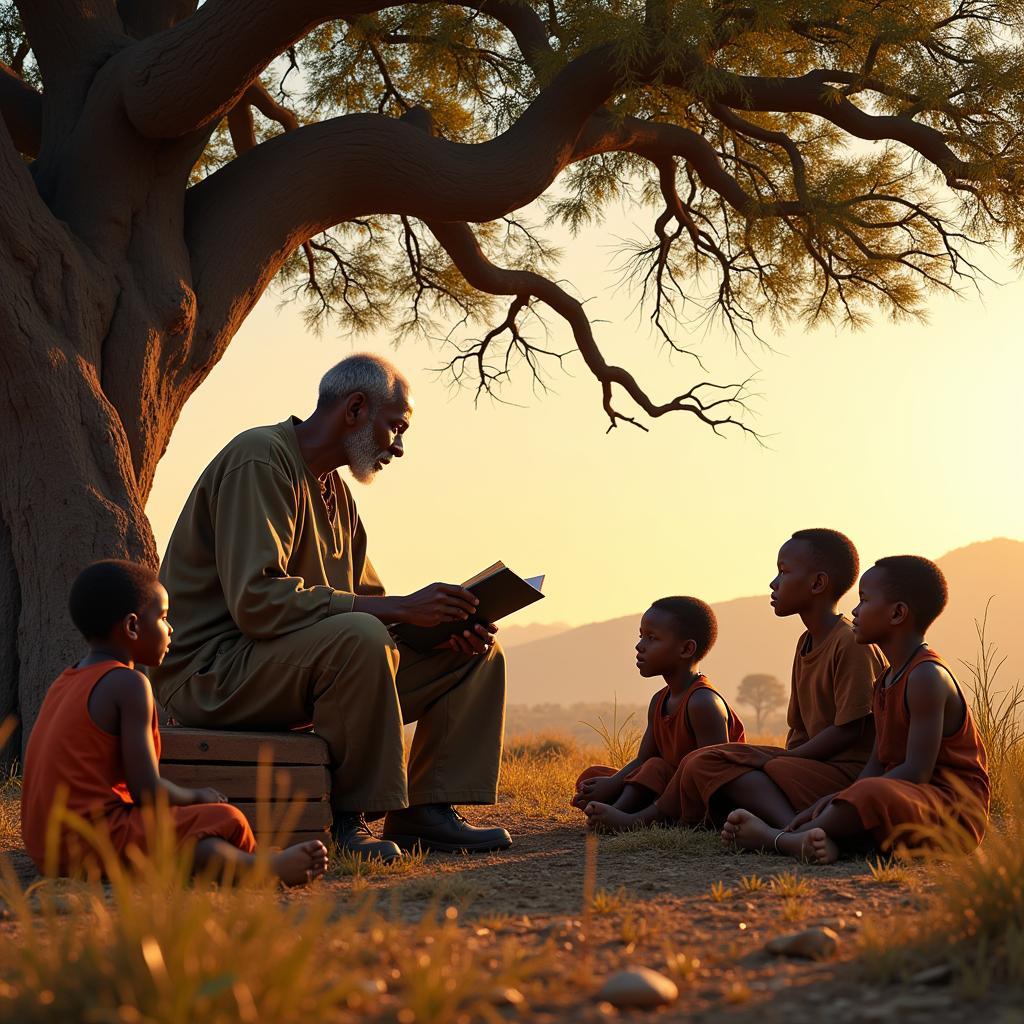Unraveling the Complexities of the African Caste System
The term “African Caste” often evokes a simplified understanding of social hierarchy in Africa. However, the reality is far more nuanced and complex than a rigid, India-like system. While some African societies did have hierarchical structures, it’s crucial to avoid generalizations and appreciate the diversity of social organization across the continent.
Beyond the Western Lens: Understanding Social Stratification in Africa
Applying the term “caste” to African societies often misrepresents the fluidity and dynamism of social structures. Many pre-colonial African communities operated on principles of age sets, lineage, and occupational specialization, which sometimes created hierarchies but rarely mirrored the rigid and hereditary nature of the Indian caste system. For instance, certain occupations, like blacksmiths or griots (storytellers), held specific social roles and status, but this wasn’t always fixed across generations. These social distinctions were often more permeable and based on skills and contributions to the community. Check out the african american shoutcasters gaming.
Did “African Caste” Exist? Examining Historical and Cultural Nuances
The notion of an “african caste” is often a product of colonial interpretations. European colonizers, familiar with the Indian caste system, projected similar frameworks onto African societies, simplifying complex social dynamics for administrative purposes. This often led to misunderstandings and misrepresentations of indigenous social structures. In reality, African societies exhibited a vast array of social organizations, from relatively egalitarian communities to those with more defined hierarchies based on lineage, age, or achieved status.
While some groups, like the Tutsi and Hutu in Rwanda, experienced tragic conflict linked to social stratification, framing these dynamics solely as a “caste system” overlooks the historical and political factors that exacerbated these tensions.
The Role of Lineage, Age, and Occupation in African Social Structures
Lineage played a significant role in many African societies, influencing social standing and access to resources. In some communities, descent from a particular ancestor granted higher status. Age also played a vital role. Elders often held authority and respect, guiding community decisions and passing down knowledge. Occupational specialization further contributed to social differentiation. Certain skills, such as metalworking or healing, were highly valued and conferred a particular social position. However, these hierarchies were not always fixed or insurmountable, and individuals could gain status through achievements and contributions to the community. You can also check the latest african games today.
How “African Caste” Differs from the Indian Caste System
A key distinction between African social hierarchies and the Indian caste system is the lack of inherent “purity” and “pollution” concepts that define the latter. In India, caste is associated with notions of ritual purity, determining social interactions and access to religious practices. This rigid system based on birth significantly restricts social mobility. In contrast, many African social structures allowed for greater fluidity, with individuals potentially moving between social strata through achievements or changing circumstances. Take a look at the african american casters gaming.
Dr. Anika Olumide, a renowned anthropologist specializing in African social structures, explains, “The term ‘caste’ is often a misnomer when applied to Africa. We see diverse forms of social organization, often based on lineage, age, and occupation, but these are rarely as rigid or hereditary as the Indian caste system.”
Challenging Misconceptions and Embracing Diversity
Understanding African social structures requires moving beyond simplistic notions of “african caste”. By acknowledging the complexity and diversity of pre-colonial African societies, we can appreciate the rich tapestry of social organization across the continent. This nuanced understanding challenges colonial narratives and promotes a more accurate portrayal of African history and culture. What are some examples of pre-colonial social structures that differed from the caste system? How did colonialism impact the perception of African social hierarchy?
Professor Kwame Asante, a historian specializing in pre-colonial Africa, notes, “Reducing African societies to a simplified ‘caste’ system ignores the rich tapestry of social organization and governance that existed across the continent. Each community had its own unique structures, often based on lineage, age, and occupation.”
In conclusion, the term “african caste” requires careful consideration. While hierarchical structures existed in some African communities, they often differed significantly from the rigid Indian caste system. Recognizing this diversity is crucial for understanding the complexity of African social organization and challenging misleading generalizations. Explore the rich history and cultural nuances of Africa to move beyond simplistic labels and appreciate the true diversity of the continent. Check out the african faber castell connector pens price. You might also want to know more about the african cup of nations broadcasters.
For support, contact us at +255768904061, kaka.mag@gmail.com, or visit us in Mbarali DC Mawindi, Kangaga, Tanzania. We have a 24/7 customer service team.


